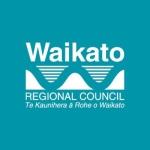US expert joins discussion on Waikato's future
Waikato Regional Council is next week hosting a visit from a Californian local government specialist in sustainable development at a time when the council is working with others to boost regional development and innovation.
James Keene is the city manager of Palo Alto, which is home to Silicon Valley companies and has been the "incubator" of hi-tech firms such as Google, PayPal, Logitech, Sun Microsystems and Intuit.
Mr Keene - part of a local government exchange programme - will be having extensive discussions with local business leaders and those involved in innovation in the Waikato.
Some of his specialist areas of interest include sustainable "green growth", local government's role in promoting development, and development partnerships between business, the community and local government.
The visit comes at a time when the regional council is focusing more on taking a facilitative role in economic development in the region.
The council's policy manager Vaughan Payne said the Waikato was very strong in some sectors - such as agriculture and manufacturing - but needed to do better to improve living standards and overall economic performance.
"The recent establishment of a new governance group of local authority leaders to strengthen opportunities for collaboration and drive regional initiatives is an example of the strong desire for economic growth and innovation in the Waikato," said Mr Payne.
"The governance group builds on a range of other development initiatives involving local government in the Waikato.
"The regional council and Hamilton City Council are part of the Upper North Island Strategic Alliance which has agreed to collaborate more on a range of issues.
"Also, the regional council is developing an economic profile of the region, with input from a wide range of stakeholders, to help develop a shared understanding of the issues we face. This work is also looking at where best to put our development and innovation efforts in future. Finding ways to add value to food production, and other traditional strengths such as manufacturing, is obviously one of the keys to lifting our performance."
Land use issues were being considered through the Future Proof project, involving the regional council, Hamilton City and the Waikato and Waipa districts, while the regional council was involved in developing fish farming in the Firth of Thames.
Mr Payne said the regional council had also started drafting a project brief that will lead to the preparation of a regional economic development strategy, to be done in conjunction with iwi, industry and other councils.
"Putting in place arrangements to further facilitate development and innovation are crucial for helping the region to maximise the uptake of economic opportunities.
"We have a good regional research infrastructure in place now - a key question is how we can collectively leverage off this together in a collaborative way to deliver the most benefit to Waikato Inc.
"It'll be important to manage any new development in a way that protects the natural resources, like water, that are crucial to supporting industries such as farming, electricity generation and tourism. We also need to plan in a way that helps protect high quality soils for farming."
Mr Payne stressed there was no quick fix "silver bullet" or "king hit" for ensuring future success. "Getting things as good as they can be will involve a multi-faceted approach aimed at making incremental improvements over time. This will require sustained effort by all involved."
